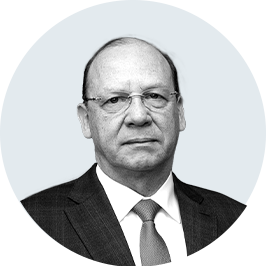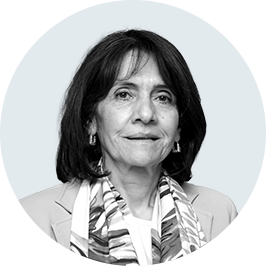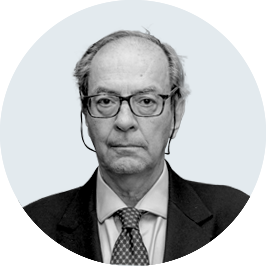Who are the members of the Board of Directors and how are they elected?
The Board of Directors has seven members: the Minister of Finance and Public Credit, the Governor of the Central Bank, and five full-time Board Members, who exclusively represent the general interest of the Nation [See: Political Constitution, Art. 372; Law 31 of 1992, Art.28; and Decree 2520 of 1993 -Bylaws, Art. 29].
The Minister of Finance and Public Credit chairs the meetings of the Board of Directors. Their attendance allows for coordination between Banco de la República’s decisions and the government's general economic policy, recognizing the institution's independence and autonomy.
The Governor of the Central Bank is elected by the Board of Directors every four years, renewable for two terms, which means that they might remain in office for up to twelve years. This election is made following a rigorous process that ensures that the person elected meets the same qualities and requirements set for the full-time members of the Board, including the rules for enforcement of disqualifications or incompatibilities.

Germán Ávila
Minister of Finance and Public Credit
Full-time Board Members are appointed by the President of the Republic for fixed institutional terms of four years, which may be extended twice so that their maximum period is up to twelve years. Two members of the Board can be replaced every four years within the first month of each term [See: Law 31 of 1992, Art. 34; and Decree 2520 of 1993 - Bylaws, Art. 36].
Qualifications for being a member of the Board of Directors
To be eligible as a Full-time member, a candidate must:
- Be a Colombian citizen in exercise of their rights.
- Have a bachelor’s degree.
- Have held public or private offices with efficiency and honesty.
- Have exercised their profession in good standing or a job lecturer, in any case, added, for at least ten (10) years in matters related to the general economy, international trade, currency, banking, public or private finance, or economic law [See: Law 31 of 1992, Art. 29 and Decree 2520 of 1993 - Bylaws, Art. 30].
Disqualifications
The following persons cannot be members of the Board of Directors:
- Who have been sentenced at any time by judicial ruling to imprisonment, except for political or unintentional crimes.
- Who have been ousted with dismissal by the authority exercising inspection and oversight functions, or for ethical misconducts in the professional praxis during the previous ten (10) years.
- Who have dual nationality, except Colombians by birth.
- Who, within one year of their appointment, have been legal representatives, except for regional or branch managers of any institution subject to the inspection and oversight of the Financial Superintendence or shareholders thereof with equity of more than 10% of the subscribed capital in the same period. This disqualification does not apply to anyone who has performed as the legal representative of Banco de la República in the year preceding the election.
- Who holds a marriage bond, domestic partnership, or kinship in second degree of consanguinity, first of affinity, or first civil or legal degree with other members of the Board of Directors or legal representatives—except regional or branch managers—, or members of other boards of directors at credit institutions [See: Law 31 of 1992, Art. 30; and Decree 2520 of 1993 - Bylaws, Art. 31].
Incompatibilities
The members of the Board of Directors cannot:
- Exercise their profession or any other job during their period, except as lecturers.
- Enter into contracts with the Bank directly or by an intermediator, or on behalf of another person, nor manage their own or other people’s business before the Bank during the exercise of their duties or within a year following their removal1/.
- At no time, intervene in matters of a specific nature that they might had handled during the exercise of their duties and in connection to their role.
- Intervene at no time in political or electoral proselytism, without prejudice to the free exercise of their voting rights.
- Be a legal representative, director, or shareholder of any institution subject to the inspection and oversight of the Office of the Financial Superintendent with an equity of more than 10% of the subscribed capital during the exercise of their role
cargo1/ 2/. - Those who have held a position as Board Members could not be legal representatives or members of the board of directors, except for Banco de la República of any institution under the oversight of the Office of the Financial Superintendent until a year after they leave office.
- Full-time members of the Board of Directors of Banco de la República may not serve as Ministers, Director of an Administrative Department, or Ambassador during the period for which they were appointed. In case of resignation, this incompatibility shall remain in force for one (1) year after they have ceased their duties.
What happens in cases of absolute absence?
In case of absolute absence of any of the Board Members, the President of the Republic shall appoint a substitute who will be in office for the remaining period [See: Law 31 of 1992, Art. 35; and Decree 2520 of 1993 - Bylaws, Art. 37].
Death, accepted resignation, dismissal decreed by a ruling issued by competent authorities, and unjustified absence of more than two continuous sessions are considered as an absolute absence.
1/ This incompatibility does not apply to the Minister of Finance and Public Credit when, by legal provision the Minister acts on behalf of the Nation, or when, the Minister shall be the legal representative or director of any institution under the oversight of the Office of the Financial Superintendent.
2/ This incompatibility does not apply to the Governor regarding their participation in the Board of Directors of the Financial Institutions Guarantee Fund (Fondo de Garantías de Instituciones Financieras) [See: Law 31 of 1992, Art. 31; and Decree 2520 of 1993 - Bylaws, Art. 32].



































































